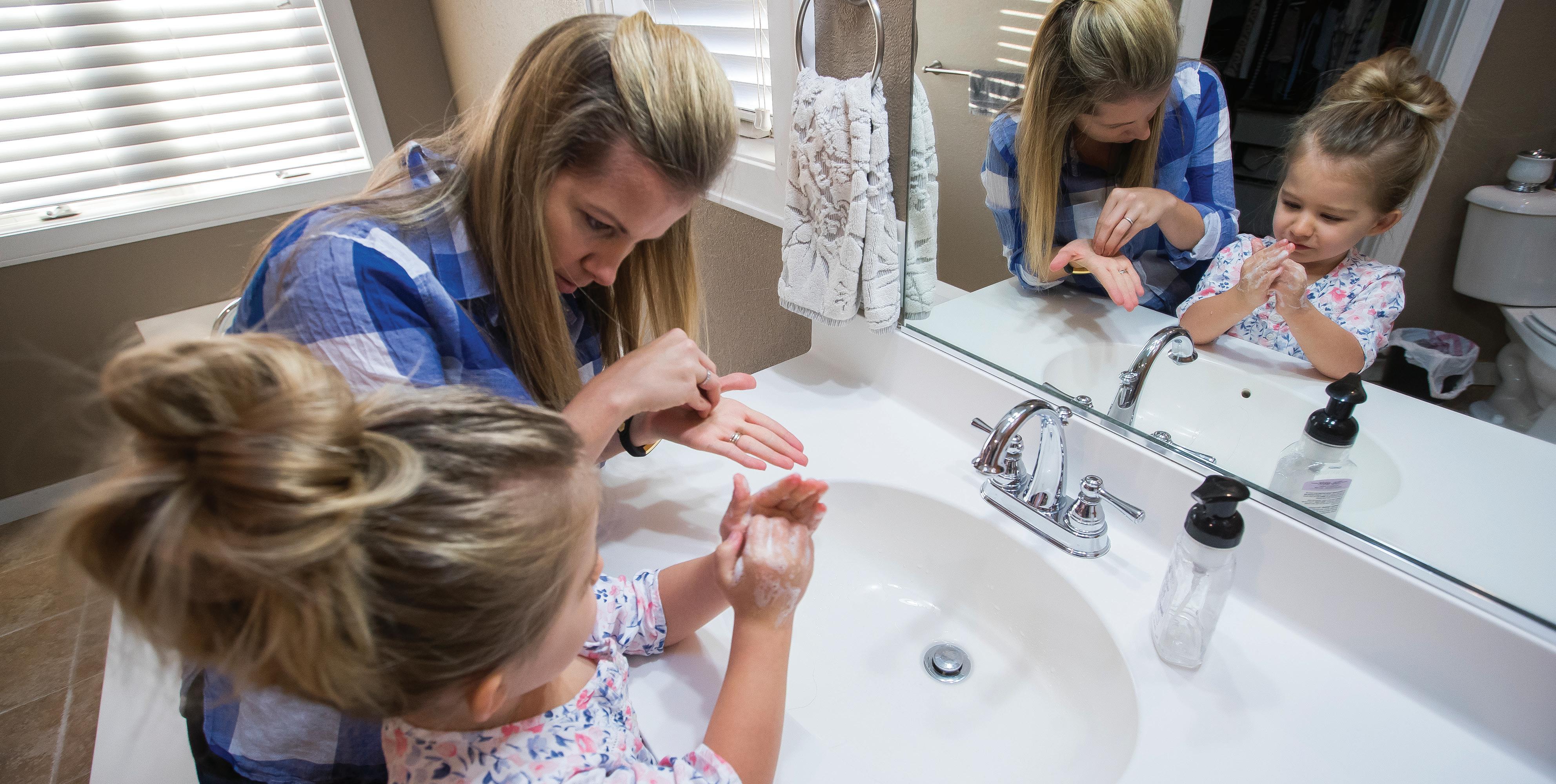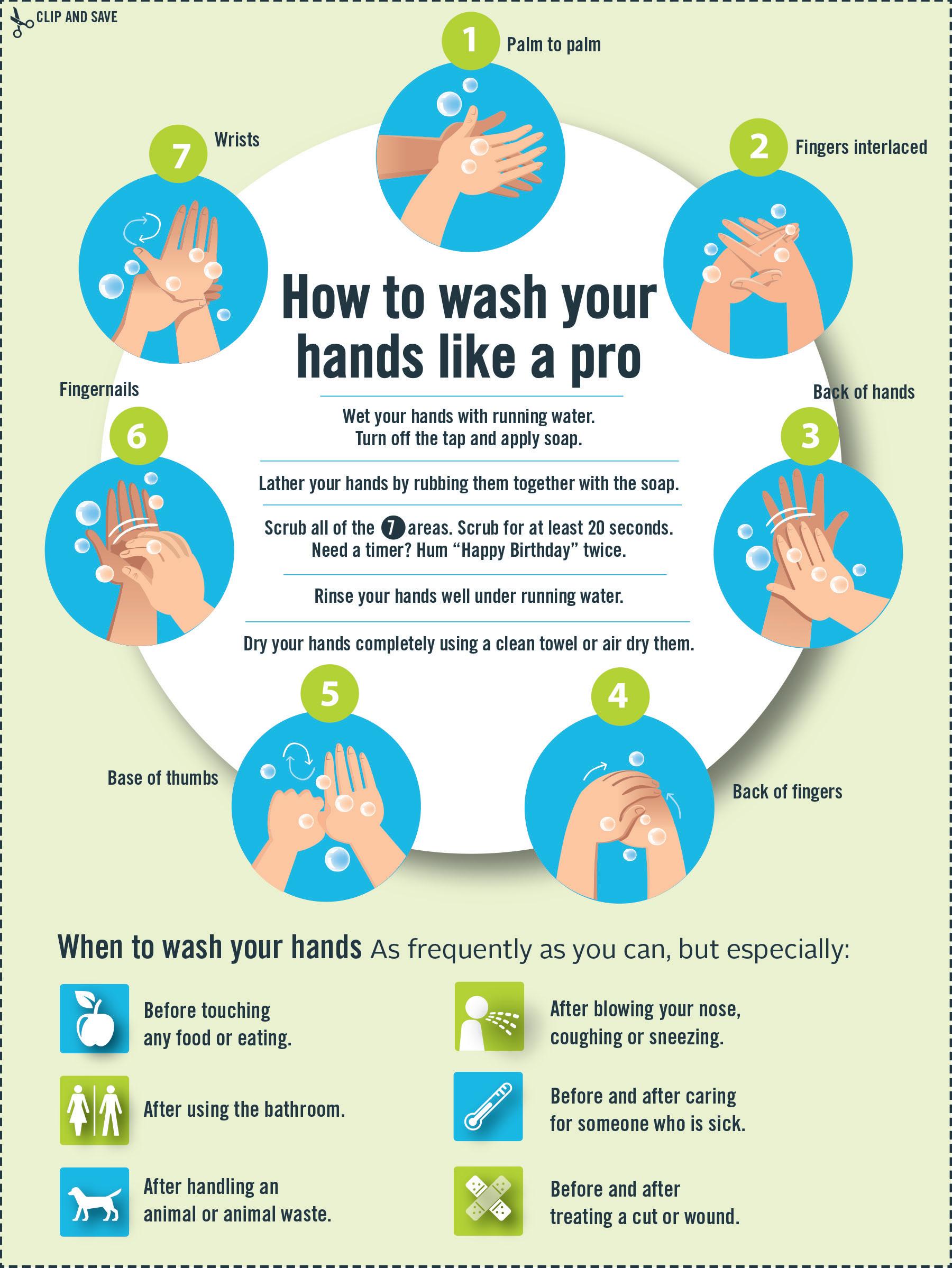
2 minute read
Family Health WASH your HANDS Physicians offer tips for teaching kids
BY CONNIE WIRTA PHOTOGRAPHY BY DEREK MONTGOMERY
At age 3, Blaise Groeschl has had professional training in washing her hands.
Her dad is a surgeon. Her mom is a family doctor. So the preschooler already knows the hand-washing routine. When Blaise climbs up her step stool, there’s no quick
8th Annual Husband & Wife Dinner Dance

Blackwoods Banquet Center - Proctor
Friday, February 9th, 2018 6:30-11:00pm
Purchase tickets at FatherDaughterBallduluth.org
$70 per couple
Tickets available at Will-Call the night of the Event
Dinner choices:
• Salmon
• Pan Seared Top Sirloin,
• Chicken Breast Champagne
• Roasted Vegetable Pasta e perfect evening for every couple! splash and dry. She lathers up and rubs her palms together. She sweeps the back of her hands and then weaves her fingers together to clean between them. With a little prompt, she remembers to rub her fingernails on her palms and soap up around her thumbs before reaching for a rinse and towel.
Dessert included - Wine & beer available for purchase. e evening will begin with an upli ing Christian message. Followed by a wonderful dinner and a night of dancing until 11:00pm.
Foaming soap that makes a quick lather and a colorful step stool that makes it easy to reach the sink are part of the routine at the Groeschl home. “Having a step stool out all the time lets kids feel independent, and they can do it themselves,” says Dr. Nicole Groeschl, a family medicine physician at the Essentia Health-West Duluth Clinic.

“You need to make it fun,” says Dr. Ryan Groeschl, an Essentia Health-Duluth Clinic surgeon. “Blaise is more willing to wash her hands if there’s a Minnie Mouse hand towel.”
January is the time when Dr. Nicole sees lots of patients with colds and flu. Families gather for the holidays and share germs along with all that love. “We’ve been together with our big families, and it’s a big germfest,” she says with smile. “Then we return to day care and school, and we’re exposed to all those germs from everywhere.”
The common cold is one of the top three reasons children visit their doctor, Dr. Nicole says. “I tell my patients there are three things they can do: Drink plenty of fluids, rest and wash your hands,” she explains. “Washing your hands frequently helps clean bacteria and viruses off your hands and helps stop them from spreading to other people.”
Dr. Nicole talks to her young patients about the importance of frequent handwashing. “I explain that we all share our toys and games, and we also share our germs,” she says. “The best way to stay healthy is to wash our hands — before and after we eat, after we use the potty and any time our hands look dirty.”
Dr. Nicole suggests getting children into a routine for handwashing. Make it part of waking up, preparing to eat and going to the bathroom. She and her husband started teaching hand-washing while potty training Blaise. “We don’t leave the bathroom without washing our hands,” she says.
Hand sanitizers and baby wipes are backups for cleaning hands when you’re on the go. The Groeschls say they’ve got them stashed everywhere. However, getting dirty while playing outside doesn’t prompt an immediate clean-up response.
“Dirty hands from an outdoor hike are probably not harmful to your health, but the invisible bacteria and viruses on your hands that may have spread there from body fluids or other people can be,” says Dr. Ryan.

Dr. Nicole says she and her husband make a point of washing their hands with Blaise or when she’s around them. “We want to model behavior that’s healthy, just like being active and eating healthy foods,” she says.
If you haven’t been an avid hand-washer, being a parent is a good reason to start. “We’ve all got to start somewhere, so why not start now?” Dr. Nicole suggests. — MDT
Dr. Nicole Groeschl cares for children and adults at the Essentia Health-West Duluth Clinic. To make an appointment, call (218) 786-3500. Dr. Ryan
Groeschl, a surgeon at the Duluth Clinic, specializes in caring for patients with cancers and noncancerous tumors of the liver, pancreas and gastrointestinal tract. To make an appointment, call (218) 786-1234.









